by cidaut | Feb 18, 2021 | Materials, MOBILITY, SAFETY
In the frame of Multi-Moby European Project, which aims at developing of technology for safe, efficient and affordable urban electric vehicle, Cidaut is responsible of the integral safety of the vehicle’s occupant but also of the rest of the vulnerable road users.
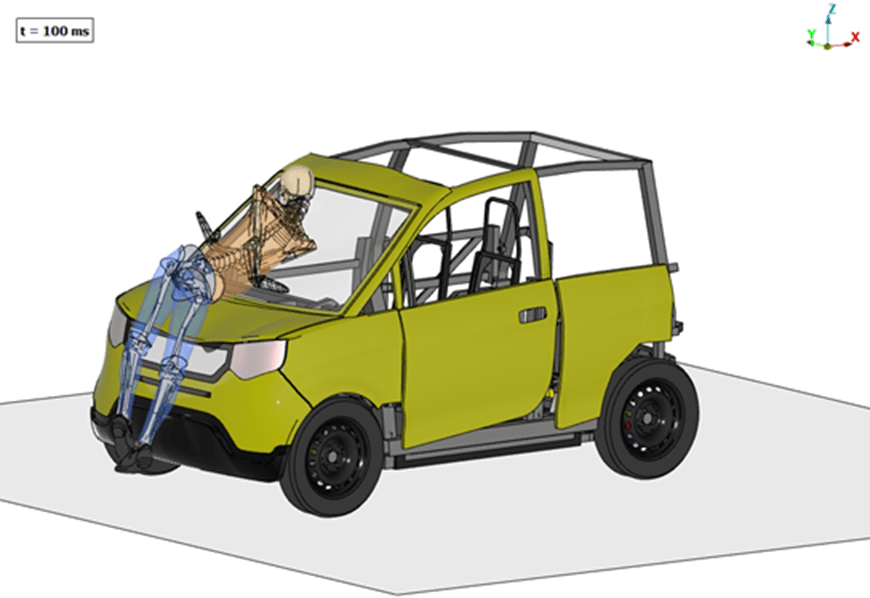
Multi-Moby is the last, by now, of a large row of projects that were born from the idea of developing environmental friendly, sustainable vehicles considering circular economy concepts, and will finish with the development of a digitalized micro-factory for the assembly of the final solution. In this project the vehicle safety is being improved that’s to the introduction of automated driving solutions that will contribute to increase the integral safety of occupants and the rest of road users.
Cidaut is in charge of the structural design, the development of the restraint system and the implementation of innovative solutions for vulnerable road users’ protection, all of them supported by the automated driving capabilities of the vehicle. The vehicle will be equipped with artificial intelligence to look out the environment and make decisions to avoid or mitigate the possible accident. In the worst case, if the accident happens, Cidaut’s solutions will minimize its consequences on both, the occupant and the vulnerable road users.
Acknowledgment
The research leading to these results received funding from the European Union (EU) project MULTI-MOBY (GA #101006953).
by cidaut | May 12, 2020 | Energy
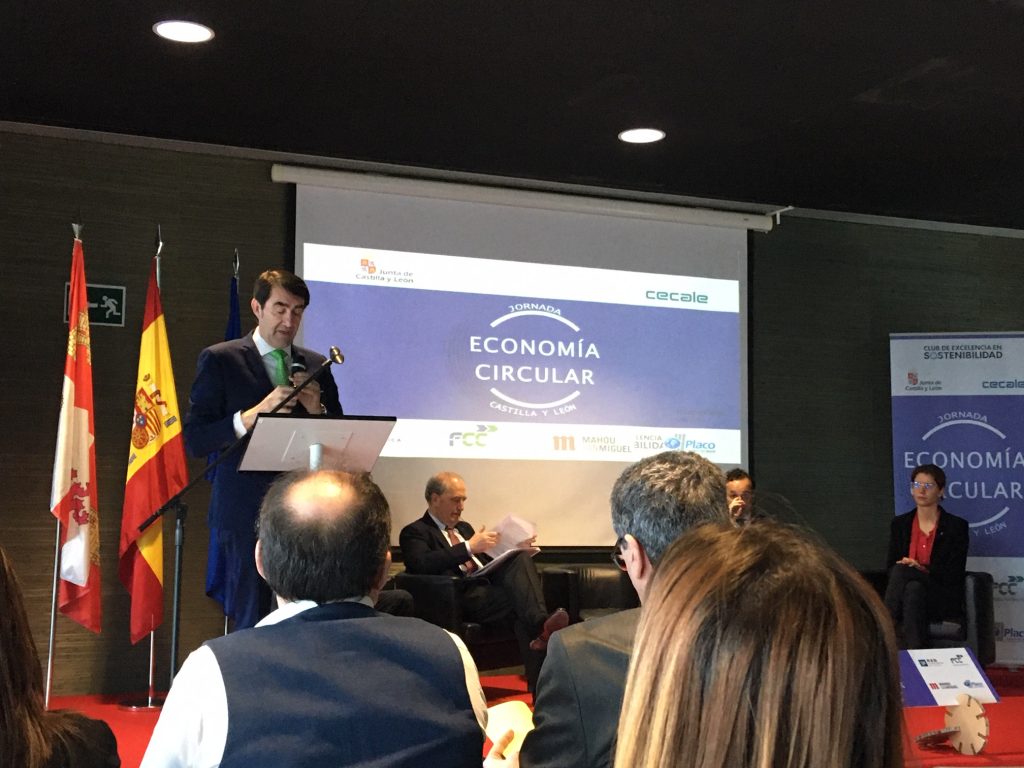
On March 2, another of the sessions on the Circular Economy Conference in Castilla y León was held in the Prae in Valladolid. The conference was opened by the Minister of Development and Environment of the Junta de Castilla y León, D. Juan Carlos Suárez-Quiñones and CIDAUT had the opportunity to attend.
The objectives of the Circular Economy Conference in Castilla y León were to present public promotion policies in Castilla y León and in Spain in this area, present the latest technologies, trends and share business success stories in Circular Economy.
Juan Alfaro, General Secretary of the Club for Excellence in Sustainability, talked about the Integration of the Circular Economy in the business strategy and the director of Programs of the Natural Heritage Foundation of Castilla y León, Jesús Díez, presented the Regional Strategy for the Circular Economy of Castilla y León.
The day had a section on Good Business Practices moderated by the vicepresident of CECALE, Angela de Miguel. The director of the Environment of Mahou San Miguel, the director of Circular Economy of Saint-Gobain Placo, the head of Circular Economy of Red Eléctrica de España, the responsible of Waste Treatment in Castilla y León at FCC Medio Ambiente and the head of the Industrial Performance Valladolid Department, Renault Spain participated in this section.
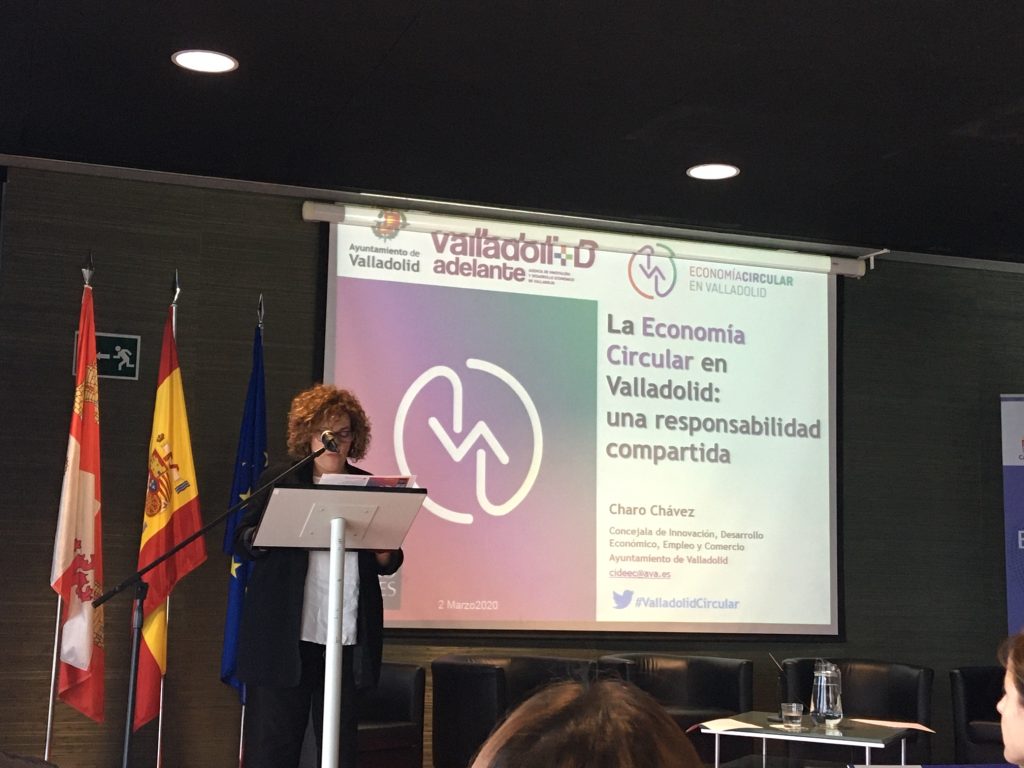
Finally, the Circular Economy Conference in Castilla y León had a round table where representatives from León and Valladolid presented the Circular Economy Strategies in these two Cities. The Councilor for Finance of the León City Council, Carmelo Alonso Sutil and the Councilor for Innovation, Economic Development, Employment and Commerce, Valladolid City Council, Rosario Chávez were in charge of energizing this last part.
by cidaut | Mar 8, 2019 | Sin categoría
With the aim of boosting the regional economy, the Junta de Castilla y León assumed the commitment through a Circular Economy Strategy in the government program presented by the President of the Junta de Castilla y León in July 2015. In this context, in order to help disseminate the circular economy and promote initiatives in cooperation, on November 29, 2018 it was held a conference. The objective was to contribute to knowledge, debate and exchange experiences about opportunities and challenges posed by a circular economy model for businesses and entrepreneurs of Castilla y León of the value chain of the automotive sector.
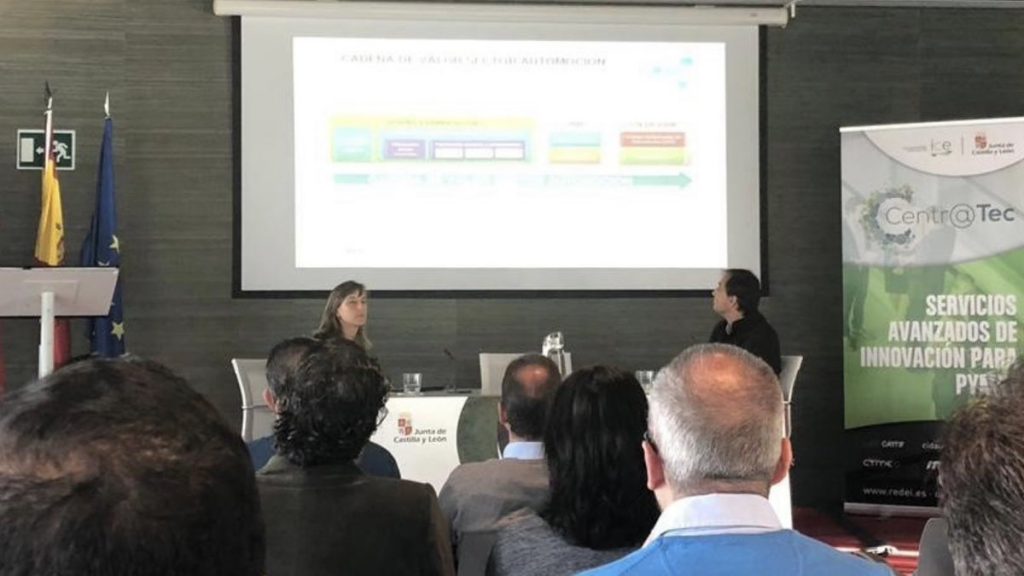
The first was focused on the analysis of the opportunities of the Circular Economy to the automotive sector through the elaboration of a questionnaire sent to the companies and relevant entities of the Castilla y Leon automotive sector. This analysis would be integrated into the global report that is being carried out by the work group of automotive Observatory of Castilla y León in 2018.
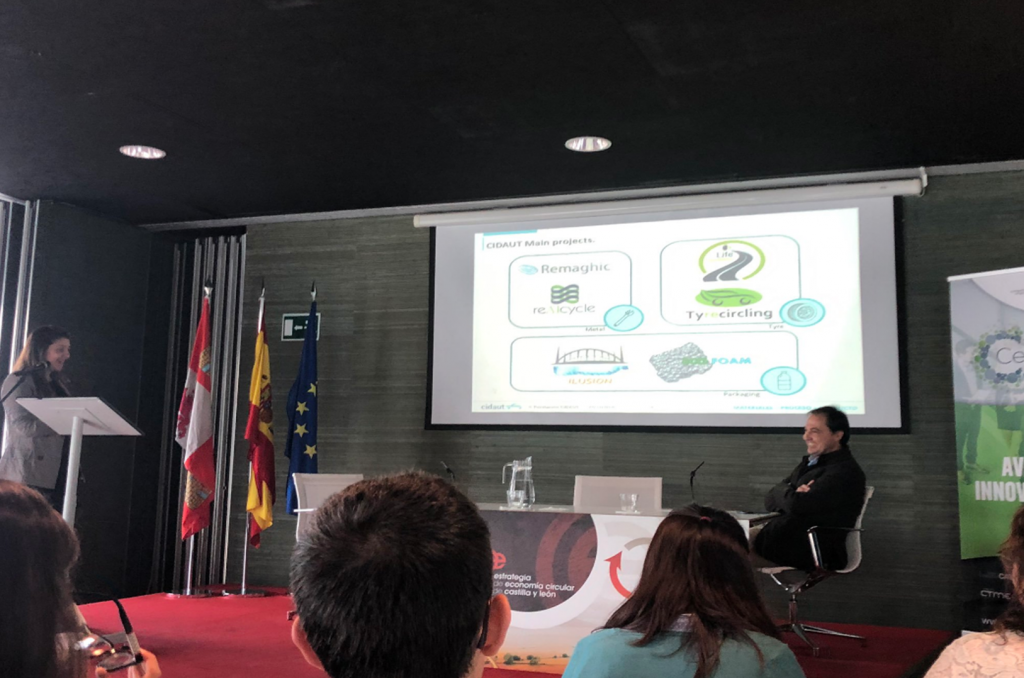
The second presentation had a practical application and addressed success stories in Circular Economy projects carried out by CIDAUT in the automotive sector. Circular Economy projects were presented in three fields: Packaging, Tire and Metal. These areas are perfectly aligned with the activities of CIDAUT and the proposed solutions can offer a competitive advantage for companies in the sector through the application of circular economy actions.
The day also brought together a group of companies and presentations aimed at highlighting the opportunities of the Circular Economy in the automotive sector. Representatives of Renault, Michelin, ABN PIPE SYSTEMS, N.C. Electronica S.A. and Fundacion Patrimonio Natural showed their activities and impressions in the field of Circular Economy.
by cidaut | Jul 27, 2018 | Sin categoría
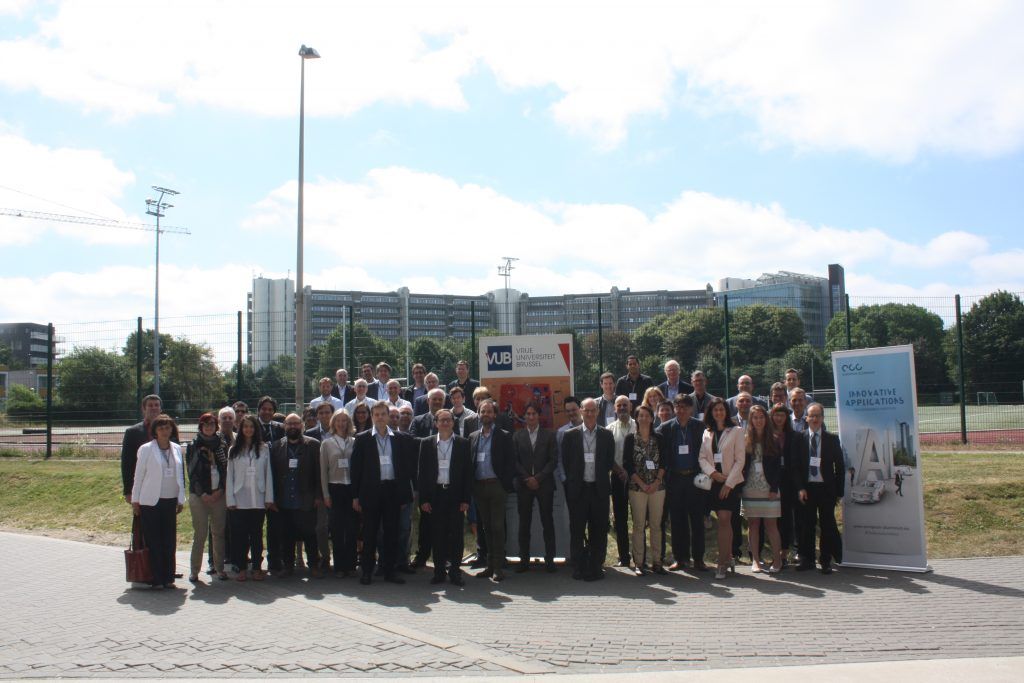
Last June 20th European Aluminium held a workshop for its members in which CIDAUT was invited to take part. Around 60 industry and research experts attended European Aluminium’s Innovation Hub workshop, jointly organised with Professor Herman Terryn from SURF group at the VUB university in Brussels. The agenda covered general presentations from SPIRE (sustainable process industry) and “Factories of the Future” public-private partnerships focusing on the current and upcoming European funding Programmes. Later parallel sessions on Circular Economy and Digitalization took place. The workshop aimed at encouraging collaboration with aluminium industry and to initiate project ideas, potentially under the Horizon 2020 framework programme.
CIDAUT presented in the Circular Economy sessions its currently patent pending technology on molten aluminium purification. CIDAUT developed a technology able to remove impurities from molten aluminium, and validated it with iron removal. Starting with samples contaminated with different levels of iron, ranging from 0.8% to 3.5%, reductions up to 0.5% were achieved at the lab for all the different samples and contamination values. This technology was upscaled to a pre industrial device in which a 40% of Fe removal has been measured.
This technology is framed in one of the pillars driving CIDAUT’s innovation, the Circular Economy. In this field, not only aluminium is recycled, as presented in this event. CIDAUT also coordinates the Remaghic project in which magnesium and rare earths are recovered from different streams to create new alloys. The efforts also reach the plastics field, in which many different projects have covered the treatment of unused plastic fractions to find new market applications and promote the development of new sustainable materials.
Visit European Aluminium to know more about the Innovation Hub, here.
by cidaut | May 18, 2018 | Energy
On March 27, 2018 took place the fourth meeting on Circular Economy promoted by the Regional Government of Castilla y León through the Ministry of Development and Environment and the Ministry of Economy and Finance.
This time the title of the meeting was “Circular Economy and Bioeconomy: Zero waste – Waste to resource” and it focuses on the use of waste as subproducts instead of dispose them in landfills as a way to accomplish with the principles of the Circular Economy.
 José Magro González, from AENOR, during his speech about certification options.
José Magro González, from AENOR, during his speech about certification options.
During the day, legal possibilities in order to obtain an end-of-waste consideration were highlighted. The European Commission has already set down end-of-waste criteria for glass, metal and copper scrap and criteria for various other materials that are under development. This latter aspect, end-of-waste concept, is regarded as a first step toward these materials to be considered as raw materials for other processes more than as a waste that have to be managed.
Certification processes around Circular Economy were also reviewed which are an important tool for enterprises to demonstrate its actual commitment with Circular Economy.
Finally, there was a time for exchanging information about existing positive experiences on waste re-used within Castilla y León, mainly related with the agri-food sector.






